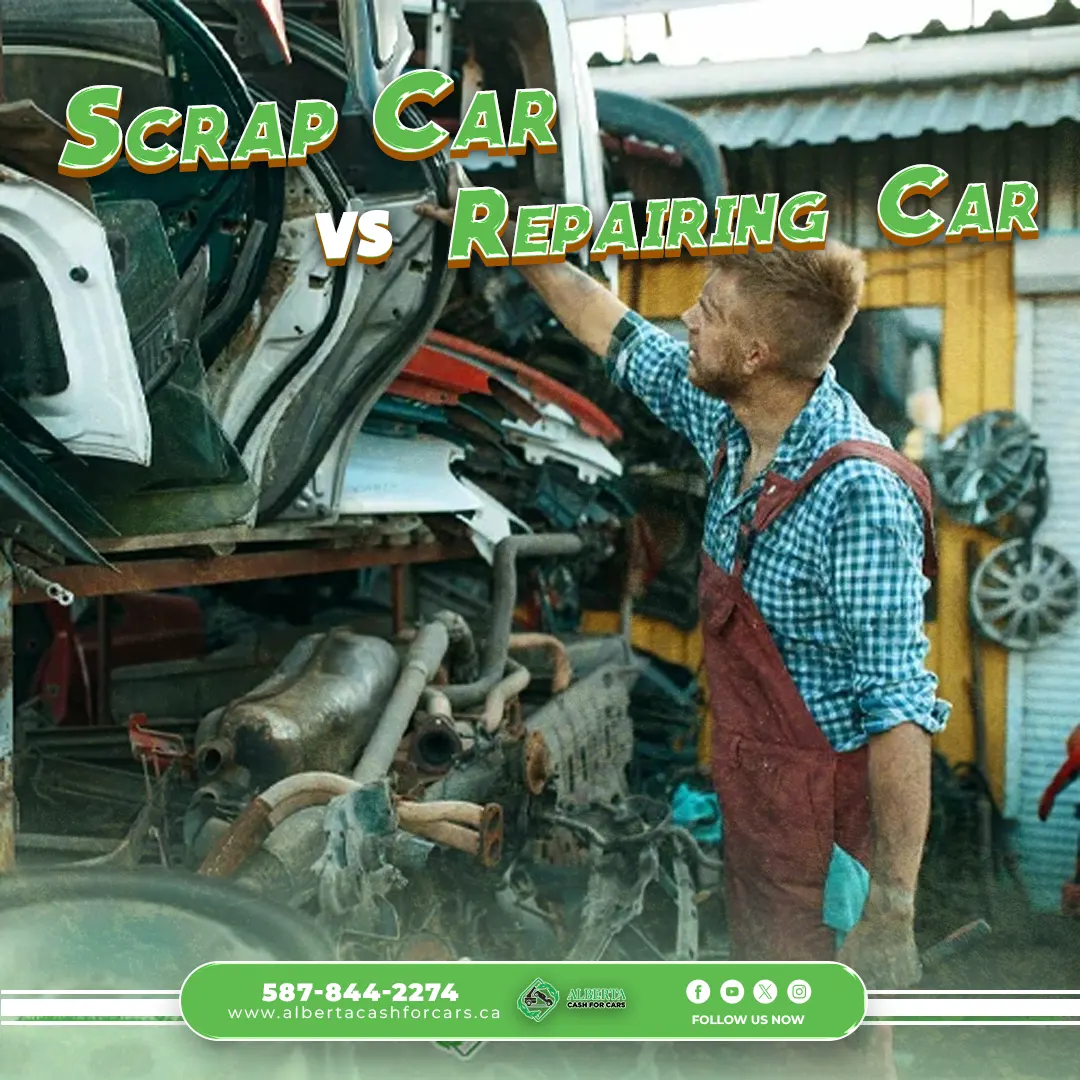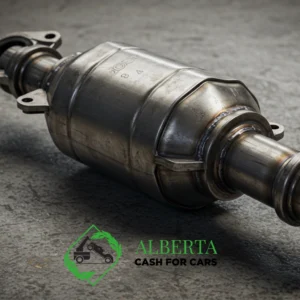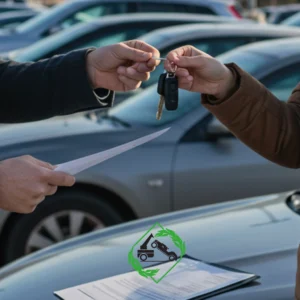As vehicles age and mileage takes a toll, owners inevitably face the question of whether to invest in repairs or cut their losses by scrapping the car. This presents a complex decision with many factors to consider on scrap car vs repairing car. By examining the full costs, reliability, transportation needs, and environmental impacts, owners can make an informed choice that fits their circumstances.
Evaluating Repair Costs Against Scrapping Value
There are some factors you need to consider for scrap car vs repairing car. A top factor is whether total repair costs exceed your car’s current resale or scrap value. Consider immediate issues plus likely future repairs, given the car’s age and mileage.
Repairing a 15-year-old vehicle worth $2,000 may not be wise if repairs exceed $1,500. However, fixing minor issues on a $3,000 car for $500 may be worthwhile to extend its life. Think through total costs now and projected future repairs to make an informed comparison to scrap cars Calgary value.
If your car holds special sentimental value, repairs may be sensible even if pricier than the resale value. But for most owners, the vehicle’s monetary value should set the limit for reasonable repair spending. Exceeding this indicates throwing good money after bad.
No Hassle, Just Cash — Book Your Free Pickup or Quote Today!
Evaluating Your Car’s Reliability
Factor your car’s reliability into the scrap car vs repairing car decision. Frequent breakdowns leaving you stranded become a financial and safety burden. As major systems like the engine and transmission wear out, roadside emergencies increase no matter how much you spend on repairs.
If your car has required frequent tow trucks or repeats the same minor issues, its unreliability indicates an aging, tired vehicle. The inherent risks make driving an unpredictable car unsafe despite your attachment. At some point, more repairs cannot restore dependability.
However, if the issues seem relatively minor and repairs can restore smooth functioning, it may justify investing to keep your car running well. Performing consistent maintenance like oil changes, tune-ups and new tires can extend its dependable lifespan.

Examining Your Transportation Needs
How badly do you need your current vehicle? For single-car households, repairs may be the only way to retain reliable transportation for commuting, errands and etc. Scrapping their only drivable car means depending on others for rides or buying another vehicle. With used car prices high, repairs could be the more affordable short-term option.
Those with extra household vehicles have more flexibility. Parking an unreliable car and using a different one provides transportation while allowing time to decide the next steps. Scrapping a redundant vehicle also saves on parking, insurance, and registration costs.
Rideshare drivers and contractors relying on their cars for work income need added assurance of reliability. Paying more for repairs may be worthwhile for them to prevent missed jobs from breakdowns.
Assessing Your Monthly Budget Realities
Your monthly finances often dictate what you can realistically invest in repairing car vs replacement. If your budget is already stretched thin, a hefty monthly payment for a different car may not be feasible. In that case, moderate repairs to extend your current car’s life could be the most prudent option.
However, those with more available income may decide now is the time to upgrade to something newer and more reliable. Why sink cash into an aging car that is unlikely to last much longer when you can afford payments on something better? Review your budget to see if you can manage a different vehicle’s increased monthly costs.
Research loan terms and get pre-approved before assuming you’ll qualify for specific payments. Today’s tightened lending requirements may alter what is feasible.

Maximizing Resale Value if Repairing
If you decide to repair your car, maximize its future resale potential through reconditioning. A thorough wash and wax, touching up paint chips, and replacing worn mats and upholstery all boost value. Repair dings and dents, fix burned-out lights, and rotate tires evenly.
A fresh oil change before sale, along with new filters, makes the engine compartment shine. Shampooing carpets and cleaning the interior eliminate odors. Little touches like air fresheners improve buyer perceptions. Take these steps to recoup more money when ultimately selling your repaired car.
Evaluating the Environmental Impact of Scrapping
Sending an old car to the junkyard contributes heavily to landfill waste unless properly recycled. Ask what percentage of vehicles the junkyard recycles versus dumping. Responsible yards strip usable parts and then send husks to metal shredders and recyclers.
However, some may illegally dump cars or lack environmentally sound practices. Choosing a yard committed to recycling helps minimize your car’s landfill impact. Selling privately often keeps a car functioning longer versus being crushed for scrap. Even donating keeps it running a bit longer while avoiding the manufacturing impacts of a replacement.
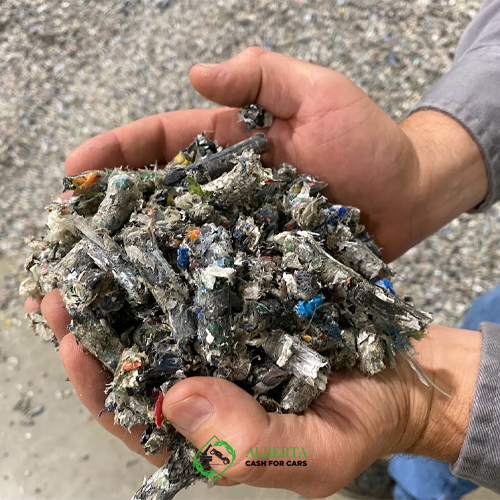
Reviewing the Logistics of Scrapping a Car
If in scrap car vs repairing car scenario, scrapping ends up your best option, understand key logistical factors. Most states require a valid title signed over to the junkyard to take possession. Bring proper documentation to avoid issues of relinquishing ownership.
You’ll likely need to pay for towing unless the buyer offers free haul away. Remove all personal belongings like insurance papers and toll transponders beforehand. Many states let you keep the license plates – check regulations to prevent illegal use.
Cancel your insurance, registration, parking passes, etc., once the car is scrapped. Failing to formally notify the DMV can leave you liable for tickets or violations if it gets resold. Take all steps to terminate associated policies and documentation.
When should you scrap the car?
There may be several reasons why you don’t know which option to choose when answering the question “Should I Scrap or Repair My Car?” Ultimately, the answer to this question is up to you and whether or not you want to keep your vehicle. But in general, the most popular reasons for choosing the scrapping option in response to the question of “Should I Scrap or Repair My Car” are as follows:

The cost of repairs is more than the value of the car
If your car is worth less than the cost of repairs as an undrivable car, it is time to scrap the car. Many people realize that the longer they keep the car and the more repairs they do, the more the cost will be higher than the actual value of the car. When you are in that situation, you realize that scrapping the car is a great option because it is still profitable for you in this situation. It doesn’t matter if your vehicle is old or damaged, scrapping companies will consider good prices for your car.
Your car has been written off
If your car is obsolete, it is probably not repairable or the repair cost is very expensive. This news is not good news for your car, but you can still check how much its scrap value is.
You want to get rid of the car without having to sell it
Selling a car can be a tiring process, dealing with buyers, visits, the bargaining process and more can all tire you out. This process requires time and energy that you may not be able to spend right now. Car scrapping can be the best option to get rid of long and boring processes.
DIY Repairs vs. Professional Services

In this section besides answering ” Should I fix my car or scrap it” we want to analyze DIY Repairs vs. Professional Services.
Cost Savings in DIY Repairs
Engaging in do-it-yourself (DIY) car repairs can offer significant cost savings for individuals with mechanical skills and a willingness to invest time in learning and executing tasks. DIY enthusiasts can benefit from avoiding labor charges, which often constitute a substantial portion of professional repair costs. Additionally, the ability to source and purchase parts independently can lead to savings compared to the markups applied by repair shops. DIYers can take advantage of online tutorials, forums, and resources that guide them through the repair process, reducing the need for costly professional expertise.
Potential Pitfalls in DIY Repairs
While DIY repairs offer cost savings, several potential pitfalls should be considered. The possibility of diagnosis or execution problems is one of the biggest obstacles. Untrained people could misdiagnose issues, which could result in the replacement of needless parts or neglecting to treat the underlying source of a problem. This can result in increased costs and potentially worsen the problem. Additionally, DIY repairs might lack warranties or guarantees, leaving individuals responsible for any subsequent issues that may arise.
Time and Skill Considerations
DIY repairs often require a substantial time investment, particularly for those who are less experienced. Learning the necessary skills and troubleshooting can be time-consuming, and mistakes can further extend the repair process. For individuals with limited time or those who rely heavily on their vehicles, the extended downtime during DIY repairs may be a significant drawback.
Complexity of Modern Vehicles
Modern vehicles are equipped with advanced technologies and complex systems. Some repairs may require specialized tools or equipment that DIYers may not possess. In such cases, seeking professional automotive services may be more practical to ensure accurate diagnosis and proper execution.
Balancing DIY and Professional Services
A balanced approach involves leveraging DIY skills for routine maintenance tasks and minor repairs while relying on professional services for complex issues or when time constraints are a concern. This hybrid approach allows individuals to capitalize on cost savings for certain tasks while ensuring that critical repairs are handled by experienced professionals, minimizing the risk of errors and potential safety hazards.
Related Post:
Navigating the Process of Scrapping a Car
The importance of conducting a thorough inspection to identify all issues (apparent and potential)
Performing a detailed inspection plays a crucial role in the decision-making process when considering “Should I scrap my car or fix it”. This careful examination forms the basis for making well-informed decisions, providing a comprehensive grasp of the car’s condition. Here are key factors underscoring the significance of a meticulous inspection:
- Identifying Apparent Issues: A detailed inspection allows for the identification of visible and apparent issues affecting the car’s performance. From dents and scratches to malfunctioning components, understanding the current state of the vehicle provides clarity on immediate repair needs.Top of Form
- Evaluating Safety Concerns: When thinking about a vehicle’s future and ” should I scrap my car or fix it” topic, safety must come first. A comprehensive check assists in identifying safety-related problems like worn-out brakes, malfunctioning airbags, or broken steering parts. Timely resolution of these issues guarantees the safety of the driver and all occupants.
- Anticipating Possible Issues: Beyond evident defects, a thorough examination allows for the prediction of possible future difficulties. Car owners and mechanics might avoid future repair expenses by proactively addressing problems before they worsen by evaluating the status of various components.
- Understanding Mechanical Health: Examining the engine, transmission, and other vital mechanical components provides insights into the overall health of the vehicle. This understanding is crucial in determining the feasibility of repairs and whether the car can continue to function reliably.
- Assessing Fluid Levels and Leaks: The health of the car may be determined by looking at the levels of fluids, such as the brake, coolant, and oil. An inspection offers important information regarding possible engine or system breakdowns by assisting in the identification of leaks or abnormalities in fluid levels.
- Evaluating Structural Integrity: A comprehensive examination determines whether the vehicle’s structure or chassis has sustained any damage. Car safety may be jeopardized by structural problems, which may also be prohibitively expensive to fix.
- Estimating Repair Costs: Armed with a comprehensive understanding of the car’s condition, owners can obtain accurate estimates for repair costs. This information is instrumental in weighing the financial implications of repairs against the value of the vehicle.
- Making Informed Decisions: After a comprehensive examination, owners of automobiles are better equipped to decide on the future of their vehicles thanks to the newfound knowledge they acquire. This information guarantees that decisions about repairs or scrapping the automobile are in line with its true state and long-term sustainability.
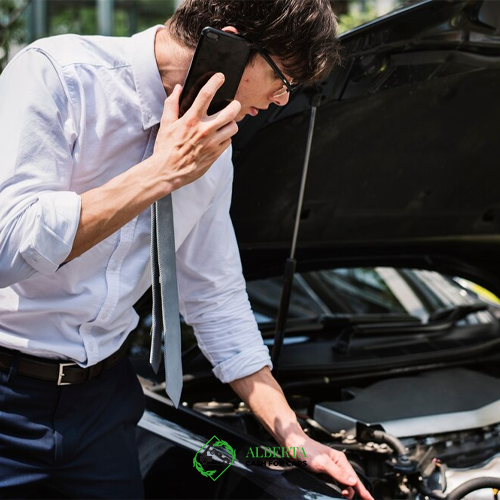
A thorough inspection is a pivotal step in the decision-making process regarding a car’s fate. By uncovering both apparent and potential issues, this comprehensive evaluation provides a holistic understanding of the vehicle’s health, enabling owners to make decisions that align with their safety, financial considerations, and overall automotive needs.
Conclusion for Scrap Car vs Repairing Car
When an aging car starts experiencing more frequent issues, owners face a pivotal decision – invest in repairs or cut losses and scrap it. Evaluate environmental impacts, as poorly recycled scrap vehicles burden landfills. Review logistics like towing and paperwork to execute scrapping legally and completely. Start by comparing total scrap car vs repairing car costs to the vehicle’s current cash value. Significant expenses exceeding resale value signal scrapping may be the prudent route.
Carefully balancing all these factors allows for making the optimal data-driven decision on repairing or scrapping that car. Set aside emotions and thoroughly research all angles. Determine the choice that makes the most financial sense for your situation while protecting safety and transportation needs.

